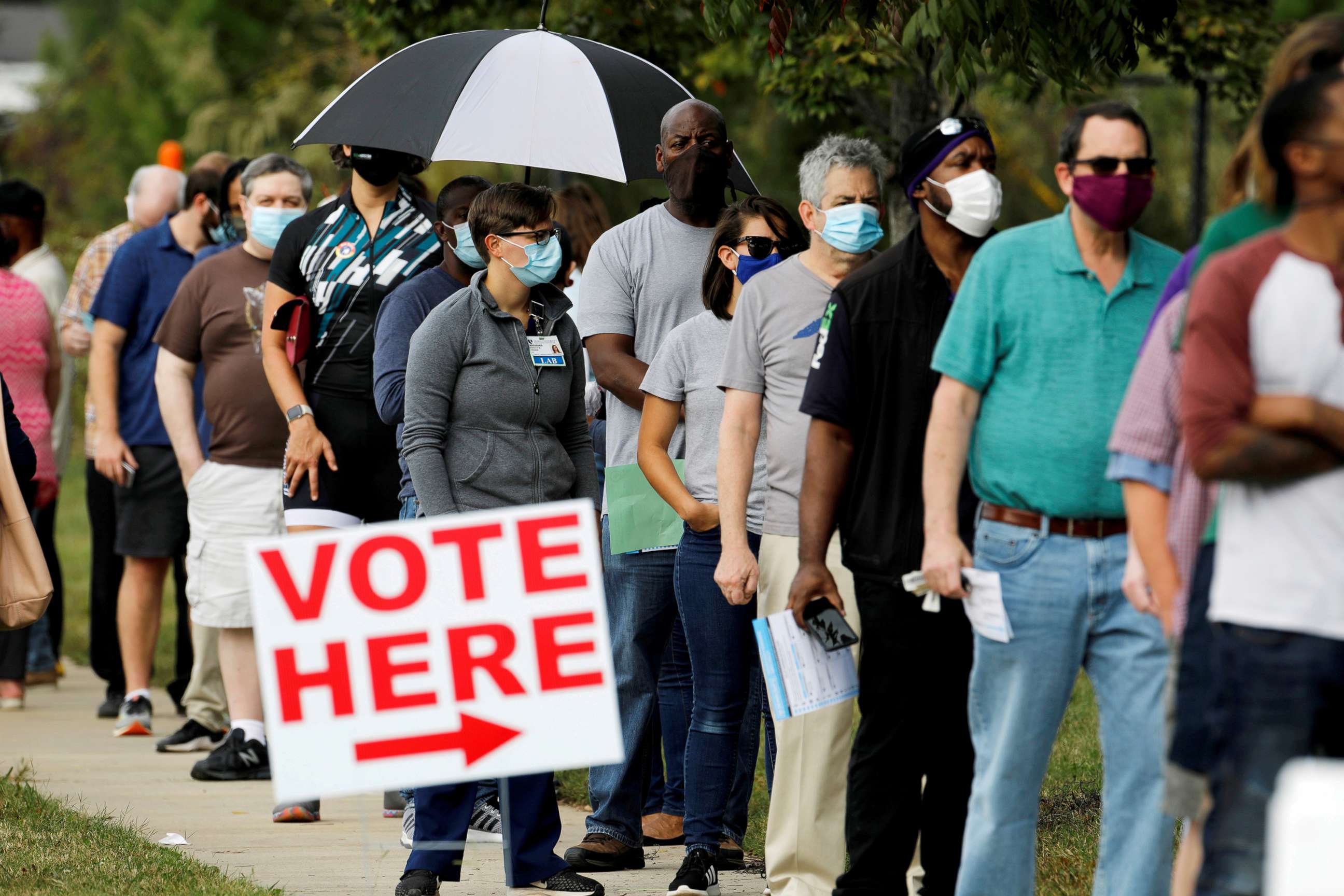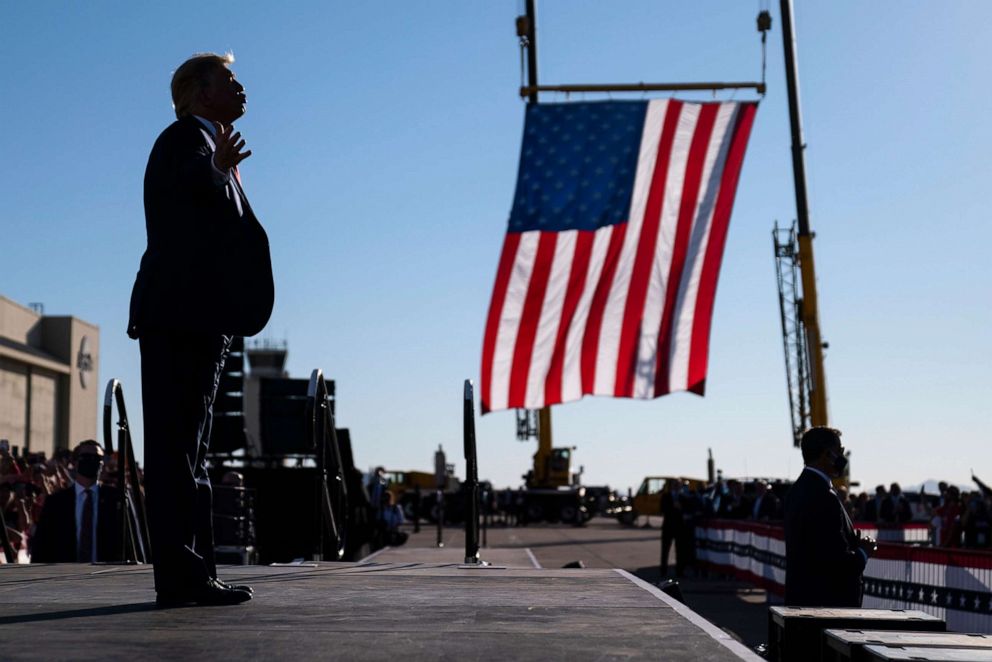Early vote explosion shows system working, with stress tests ahead
It's happening the way it's supposed to happen. Voters are voting -- smashing records, adjusting behaviors and recalibrating expectations -- in ways that show the nation is many things, but definitely not apathetic.
It's also happening in ways that will stress the systems built to account for it all. More early votes, oddly, will mean reporting out results will take longer in several critical states -- to say nothing of the continuing challenges of participating in and administering an election in the midst of a pandemic.

Amid a flurry of COVID-era campaigning in battleground states, this week brought new high-water marks that suggest turnout records will fall this year.
Nearly as many Texans have voted as in all of 2016, with Georgia, North Carolina, Florida and Arizona are among the states already three-quarters of the way there, according to the United States Elections Project at the University of Florida.
But this week also brought continued uncertainties about the process of voting. The Supreme Court now has nine justices again, and voters in states, including Wisconsin, Michigan, Pennsylvania, Minnesota and North Carolina have a right to be confused about what the law is when it comes to how to vote -- and even what those laws might be on Election Day and beyond.
Layered on top of all of that are the efforts by President Trump to sow doubts about the integrity of the election.

From the local level on up, election officials say they're confident that there will be an accurate -- and, hopefully, promptly tallied -- vote count. But the surge of voting, while good for democracy, figures to make everything more difficult during this most difficult of times for the country.
-ABC News’ Political Director Rick Klein




